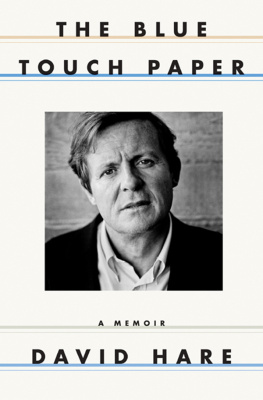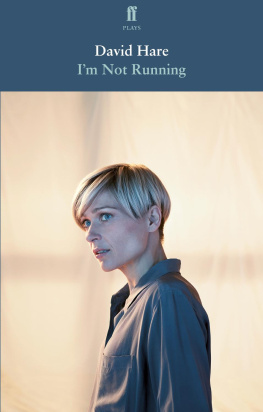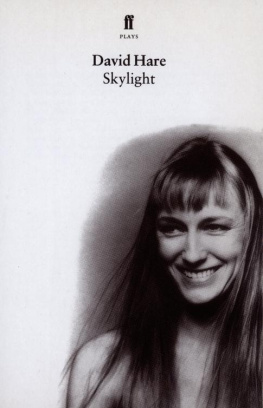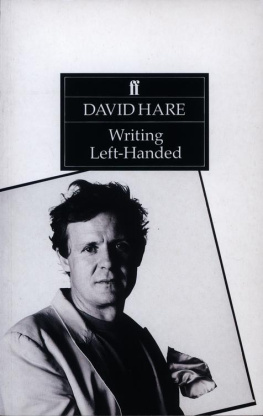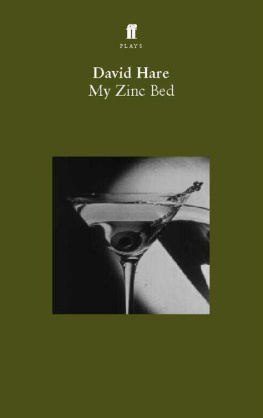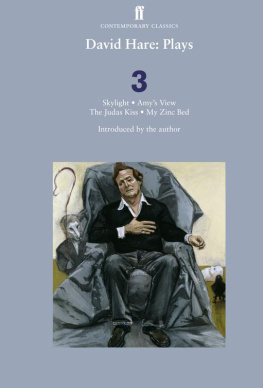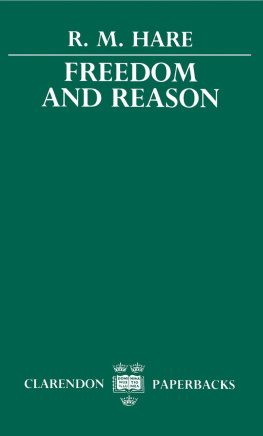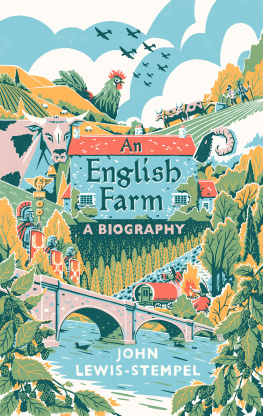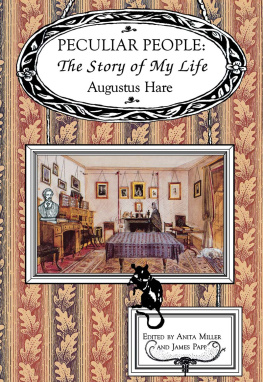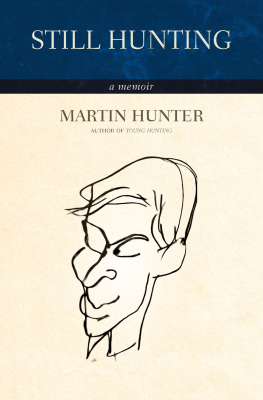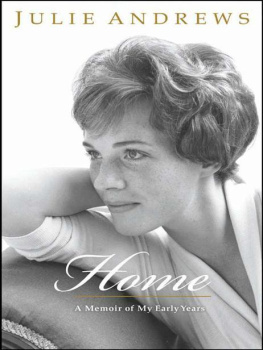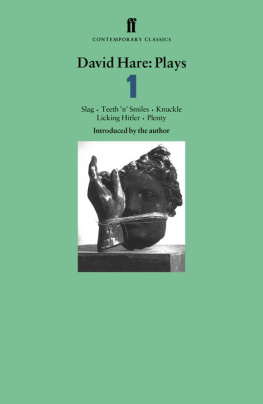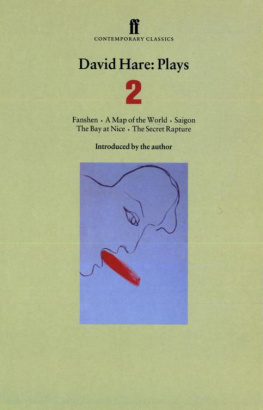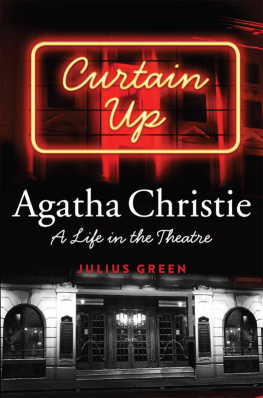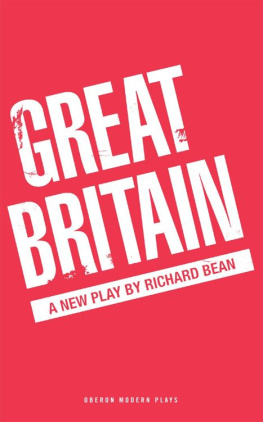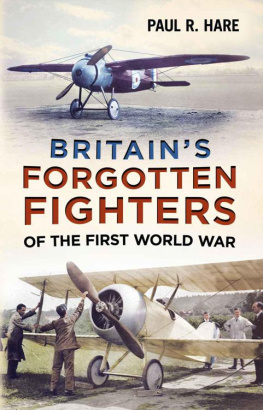
DAVID HARE
The Blue Touch Paper
A Memoir

W. W. NORTON & COMPANY
Independent Publishers Since 1923
New York London
Copyright 2015 by David Hare
First American Edition 2015
First published in Great Britain by Faber & Faber Ltd
All rights reserved
For information about permission to reproduce selections from this book, write to Permissions, W. W. Norton & Company, Inc., 500 Fifth Avenue, New York, NY 10110
For information about special discounts for bulk purchases, please contact W. W. Norton Special Sales at specialsales@wwnorton.com or 800-233-4830
Production manager: Anna Oler
The Library of Congress has cataloged the printed edition as follows:
Hare, David, 1947
The blue touch paper : a memoir / David Hare.
First American edition.
pages cm
ISBN 978-0-393-24918-7 (hardcover)
1. Hare, David, 1947 2. Dramatists, English20th centuryBiography.
I. Title.
PR6058.A678Z46 2015
822'.914dc23
[B]
2015017212
ISBN: 978-0-393-24919-4 (e-book)
W. W. Norton & Company, Inc.
500 Fifth Avenue, New York, N.Y. 10110
www.wwnorton.com
W. W. Norton & Company Ltd.
Castle House, 75/76 Wells Street, London W1T 3QT
In the summer of 2010, I was approached by the estate of Terence Rattigan to write a companion piece to The Browning Version. Traditionally, this well-known one-act play had been presented in a double bill with an inept farce called Harlequinade. It would be enlivening, the estate thought, if Rattigans popular piece about masochism and manipulation could for once be matched with something a little less facetious.
I loved the idea of writing about my time at Lancing College in the 1960s, so that Rattigans version of his schooldays could sit alongside mine on the same bill. Normally a full-length play might take me a year to write, but on this occasion I finished a one-act play in four weeks. All writers dream of a moment when your subconscious dictates and you are able to act as nothing more than a stenographer. It had happened to me only once before. On some nights, I would wake at three in the morning and scribble in a bedside notebook. My wife would stir and ask me what I was doing. Writing tomorrows dialogue, I would say, before falling asleep.
The result, South Downs, was partly fiction. The plot was made up and so were the characters. But the ambience was true to my memory of attendance at an Anglo-Catholic school fifty years previously. The subject, essentially, was the need to fake a confidence you dont feel. It was about the price of pretending you understand when you dont. Everything about the play seemed to delight me, the cast and the director, Jeremy Herrin. Unusually, it was rehearsed and performed without a moment of strain. Anna Chancellor, who played the crucial part of Belinda Duffield, a West End actress who visits the school and thereby transforms the life of the fourteen-year-old hero, remarked that when she first read South Downs, it was as if the play had never been brought into being. It simply was. William Empson, praised for his apparent fluency, once said, The careless ease goes in last. But on this occasion it had gone in at the time.
After so many years of anxious struggle, it was an unusual experience for a dramatist to be handed a play for free. I asked myself why it had happened this time and not before. But I also had to answer letters from many contemporaries, most of whom I had not spoken to or heard from for half a century. They, like me, had spent recent years haunted by everything unresolved from their distant adolescence. I kept thinking of William Faulkner: The past is never dead. Its not even past. Or as my friend Wallace Shawn observed, They warn you lifes short. They dont warn you its simultaneous.
Up till then I had taken it for granted that I had lived through a period of little historical interest. Because I was born in 1947, I had spent most of my life feeling that I had missed the main event. The Second World War had ended before I was born, even though over and again it provided the setting for my imagination. But when I wrote South Downs, set in the early 1960s, I realised what an extraordinary distance we had travelled. Its world seemed to me closer than yesterday, but for many of the cast it was unrecognisable. I had to explain to the young actors that I had been born into a country the majority of whose population at least professed to believe in God. They also believed in their empire, their institutions, their democracy, their public figures and the essential decency of their civilisation. In particular parts of the country, belief in socialism was also deep-rooted and widespread. Sixty years later, those same people, or their descendants, appeared to have lost faith in everything except private virtue. They ascribed positive qualities to their friends but to almost nobody in large enterprises or public life. How on earth could so radical a change have occurred and how could it have gone so little remarked while it happened?
When writing plays, Ive preferred to steer clear of direct autobiography. I may have plundered an incident or a remark, but rarely a storyline or a whole character. Writing about, for instance, the privatisation of the railways or the distribution of aid to the poor, Ive tended to find inspiration in the external world. Its difference that has stimulated me, not similarity. So when surprised by a desire to record the circumstances of my own life, I felt a novice. I wanted to be expansive, to move where my memory took me, and I felt this could be best achieved not by writing prose, but by talking. A series of conversations over a year with Amy Raphael followed with the aim of discovering why it was so hard for my generation to put the past to bed. Using as a primary source her edited transcripts to which, with her exceptional taste, knowledge and literary skill, she made an essential contribution I have fashioned this book. If, as with my education at Lancing, I have already written about a particular time or place, I have felt free to draw lightly on that previous account.
My hope is to show how a lifelong engagement with two disparate art forms film and theatre may reflect at the same time on more diverse questions and on more intimate. This book is the story of my apprenticeship. It seeks to tell how a young man became a dramatist, and to describe the cost and effect of that decision. There are many ways to become a writer and mine is just one. But I suspect certain aspects overlap with the experience of others. I made a series of peculiar choices, but they were in response to common problems.
In an opinion survey, one person in six said what they wanted most before they died was to write a memoir. All of us live lives where we are both large and small: large because of the intense focus of our self-attention and small because, however fierce our concentration, the universe remains indifferent to us throughout. My life has been no different from anyone elses: both everything and nothing.
DH
London, February 2015
You see, when ones young, one doesnt feel part of it, the human condition; one does things because they are not for good; everything is a rehearsal to be repeated ad lib, to be put right when the curtain goes up in earnest. One day you know that the curtain was up all the time. That was the performance.
SYBILLE BEDFORD
When I was growing up nothing excited me more than getting lost. Walking bored me when I knew the way. Until I was twenty-one, my home was on the south coast, firstly in a modest flat up a hill in St Leonards, later in a semi-detached in Bexhill. But when we made our annual family trip to my maternal grandmothers in Paisley, my sport was to get on a bus, close my eyes and then get out. I was barely ten and I had no idea where I was. Sometimes I recognised Love Street, the home of the local football club, St Mirren, for whom my uncle Jimmy was a talent scout, but nothing else made sense to me. My grandmother Euphemia was furious when I got back two hours late for tea in those days ham, lettuce, tomato and pork pie, followed by a lot of biscuits and cakes. This after a lunch of mince and tatties.
Next page
